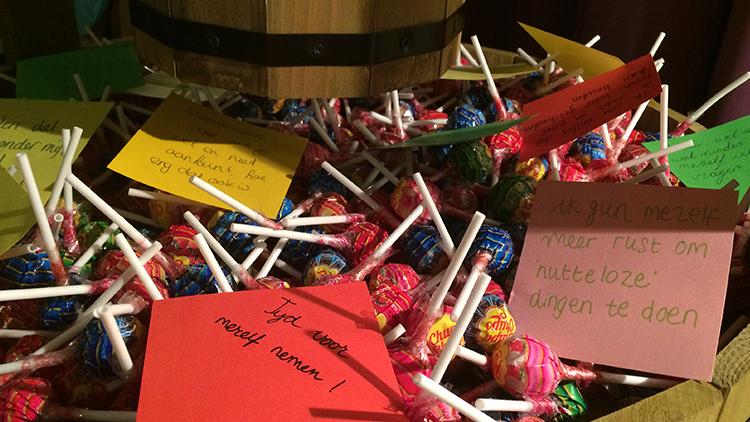Free online help and wellbeing week in the fight against stress and depression

In academic year 2019/2010, all UU students will receive a link to an online questionnaire about mental health issues. Those who fill out the questionnaire will then receive feedback on their mental wellbeing. If there’s cause, students will receive the advice to follow a free e-module, consult a student psychologist, or take other action.
The university board hopes to use the online psychological help to combat the increasingly prevalent issue of stress, depression, and burnout symptoms among students. The number of students calling for help from the university is increasing, the Executive Board has noticed.
The demand for guidance from student psychologist is increasing as well, and study advisers are equally busy. Several faculties recently decided to hire additional study advisers with the money they receive from so-called study advance funds. The fact that the regular health care provided by GGZ is becoming less and less accessible as a result of budget cuts puts even more pressure on the university’s system.
Caring Universities
Supporting students through the internet was one of the recommendations from the Taskforce Student Wellness, which consisted of students and teachers. The university board wanted to hear from students especially what their needs were, after the University Council called for improved mental health support for students last year. The taskforce’s final report was discussed in the council this week.
In order to assist students online, the UU is joining the project Caring Universities. This international project, set up by world health organisation WHO, wants to offer free online psychological help to students throughout the world. By identifying problems early on, more serious matters may be prevented. The university says it can ensure students’ privacy will be respected. The involvement of Harvard Medical School and other international research groups guarantee an evidence-based approach.
Additionally, a number of e-modules will be developed for UU students, together with the UU department of Psychology. Behind the scenes, students will be coached by Master’s students of Clinical Psychology. The modules won’t focus on heavy mental health issues – students facing those are referred to specialists. The VU, for example, is working within Caring Universities on modules on sleep and alcohol issues.
Through Caring Universities, the UU will gain data about the mental health issues UU students are facing. The project also offers the option of comparing the situation in Utrecht to the environments at other universities, such as the University of Amsterdam, VU University, and Maastricht University.
Reducing waiting times
Additionally, the department of Psychology is involved in a pilot in which international students of the English medium Master’s programme in Clinical Psychology will assist the student psychologists as part of their internships. The Master’s students will assist in intake appointments.
With these measures, the UU hopes to reduce the waiting times for the real student psychologists to four weeks. As a result, the university is delaying making a decision on the advice from the taskforce to increase the capacity of the student psychologists. The question from the taskforce was mostly rooted in concern about the wellbeing of PhD candidates; it suggested creating a combined student/PhD psychologist position. The UU board has already decided to start a pilot with a PhD psychologist soon.
Wellbeing week
Aside from guidance and support for students, the taskforce also asked to call attention to awareness and prevention. To this end, an annual wellbeing week for students will be introduced. The first Wellbeing Week will take place from May 6 to May 10. Following editions will be organised in the month of November. The week will focus on the importance of rest, healthy eating habits, and exercise, but also on making conscious decisions, balancing effort and relaxation, and avoiding unhealthy stress.
Other recommendations from the taskforce include starting a website that collects all relevant information on avoiding and battling mental health problems in students, and introducing a social media campaign that focuses on awareness of students and teachers.
Finally, the taskforce hopes that research, for instance based on data from the Caring Universities project and from UU student psychologists, will lead to more knowledge on students’ mental health problems and their causes. In time, that knowledge is to lead to new points of action and a shift in the university culture.
The university board is not adopting the taskforce’s proposal to hire a project leader and a communication officer. The activities will have to be organised and executed by existing UU departments. The UU is budgeting around 320,000 euros for the plan throughout the next four years.